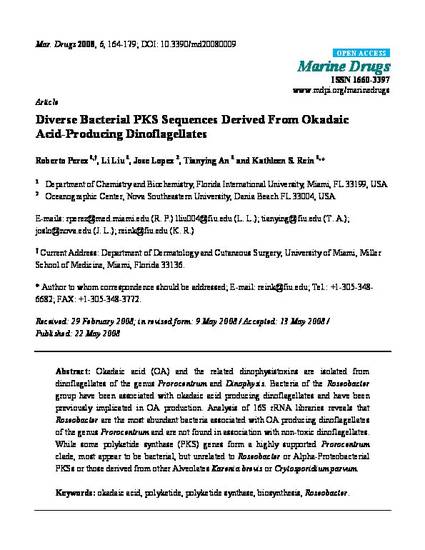
- Okadaic acid,
- Polyketide,
- Polyketide synthase,
- Biosynthesis,
- Roseobacter
Okadaic acid (OA) and the related dinophysistoxins are isolated from dinoflagellates of the genus Prorocentrum and Dinophysis. Bacteria of the Roseobacter group have been associated with okadaic acid producing dinoflagellates and have been previously implicated in OA production. Analysis of 16S rRNA libraries reveals that Roseobacter are the most abundant bacteria associated with OA producing dinoflagellates of the genus Prorocentrum and are not found in association with non-toxic dinoflagellates. While some polyketide synthase (PKS) genes form a highly supported Prorocentrum clade, most appear to be bacterial, but unrelated to Roseobacter or Alpha-Proteobacterial PKSs or those derived from other Alveolates Karenia brevis or Crytosporidium parvum.

©2008 by the author(s); licensee Molecular Diversity Preservation International, Basel, Switzerland. This article is an open-access article distributed under the terms and conditions of the Creative Commons Attribution license (http://creativecommons.org/licenses/by/3.0/).